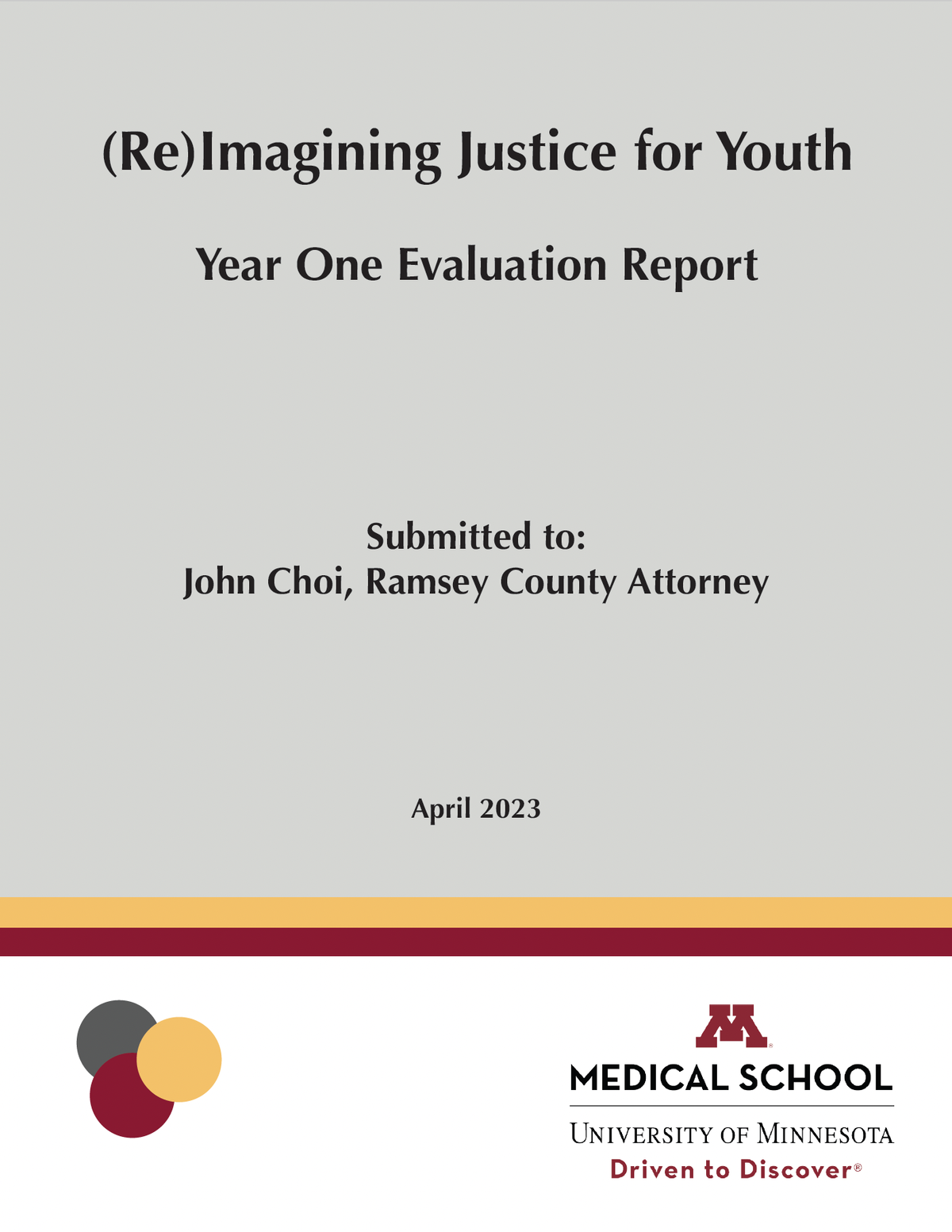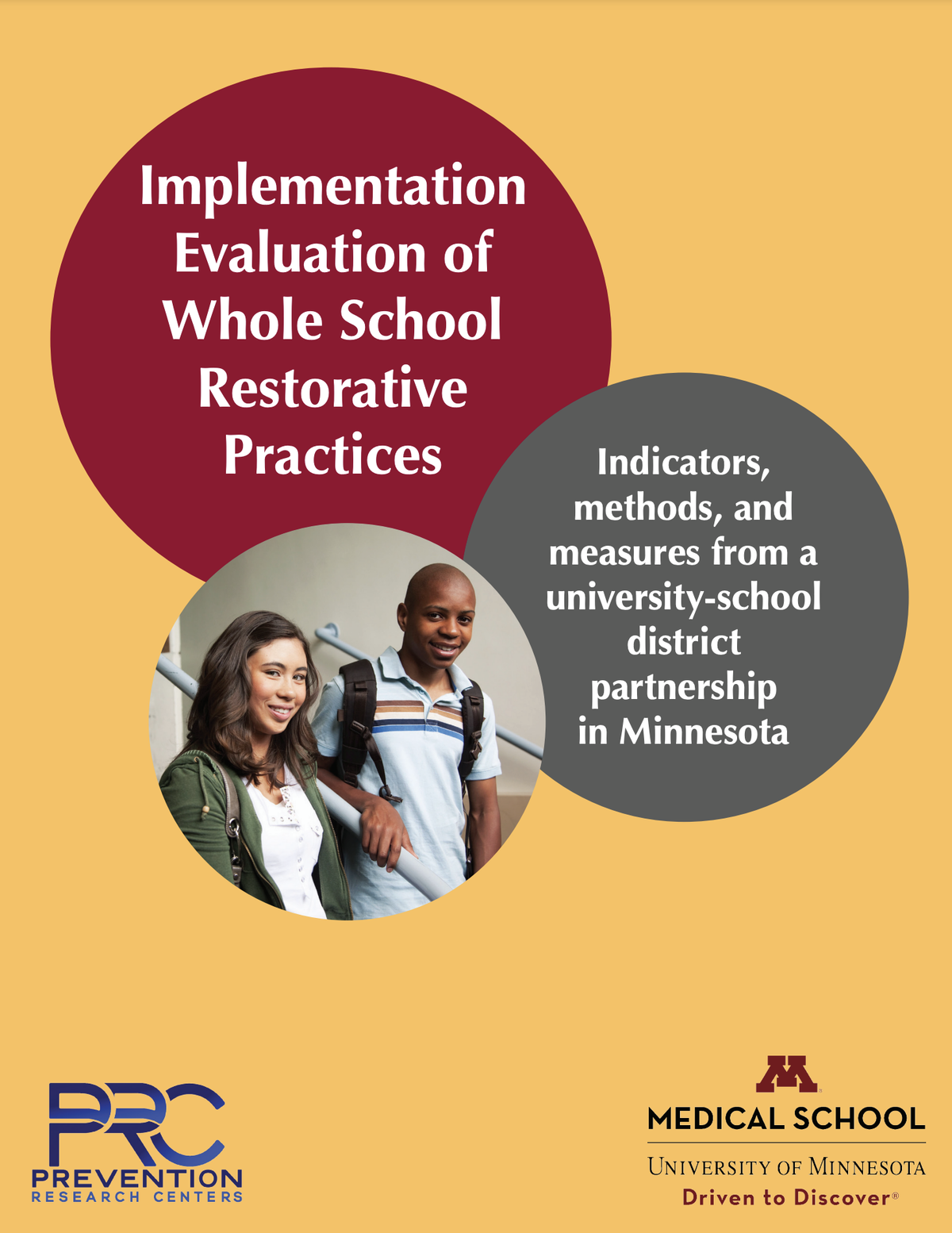About
Since 2008, our team has partnered with schools, legal advocacy groups, and units of government to assess and share lessons learned from initiatives grounded in restorative practices (RP). These approaches aim to build connected, inclusive relationships between individuals and capacities to work through conflict and harm in ways that emphasize healing rather than imposing consequences. Our center’s interest in RP emerges from the science that social, environmental, and systemic factors can create barriers to or facilitate young people’s engagement in their own healthy youth development. As adolescence is when young people must complete the developmental tasks that prepare them for healthy, productive adulthood, having connected relationships and learning practices to work through conflict can change a young person’s whole trajectory.
Projects & Partners
Saint Paul Public Schools’ (SPPS) Whole School Restorative Practices (2016-present)
SPPS and its teacher’s union successfully piloted a formal project to implement high-quality, whole school restorative practices in twelve pilot sites. As evaluation partners, we developed an Implementation Evaluation Framework, documented our lessons learned in the School Psychology Review Journal, and provided technical assistance on tailoring restorative practices to young people’s developmental stages. In 2018 the U.S. Department of Education awarded SPPS an education innovation research grant to expand RP from 12 to 20 schools. Learn more at SPPS’ Office of School Support website.
Youth Restorative Justice Initiative (2018-present)
The Youth Restorative Justice Initiative (YRJI) seeks to build a national, replicable model of integrating restorative justice practices across all decision points (i.e., within schools, police, truancy, prosecution, and courts) connected to the legal system. Centered in Hennepin County and partnering with the Legal Rights Center, Koinonia Leadership Academy, and the International Academy of Trial Lawyers, we add to the social science literature, pilot-test, evaluate, and report on restorative practices. These practices include peacemaking circles, victim-offender mediation, and family group conferencing that all use collaborative, contextualized, and tailored processes to determine harm, accountability, and steps needed to make amends.
(Re)Imagining Justice for Youth, Ramsey County Attorney’s Office (2020-present)
This is a collaboration with Ramsey County’s effort to change the way it responds to youth referred to the justice system. Our team aims to help RCAO build more restorative, effective, and developmentally appropriate interventions in a series of ways: we provide technical assistance on research and best practices; produce an annual report on current juvenile justice system responses and outcomes for youth; advise on creating differentiated responses to delinquent behavior that aligns with brain science and youth development; and design and implement evaluations of alternative justice system responses and outcomes for youth.
Carlton County Restorative Justice (CCRJ) programs (2022-present)
Our team’s 2022 evaluation report confirmed that Carlton County’s RP approach holds youthful offenders accountable for their wrongdoing and supports them in making amends to those harmed without developing a criminal record. Our evaluation found that, since 2009, CCRJ has grown into a Minnesota model of restorative justice. We reached this conclusion based on extraordinarily high rates of program completion and low rates of youth being re-referred to the program for a subsequent incident, especially given the broad eligibility criteria for referrals to their program and the sustained structure as a county-funded program.
MN Department of Education Restorative Practices (2012-present)
Our technical assistance for MDE ranged from documenting principles and practices of successful restorative schools to ongoing training and technical assistance for partner school districts to written practical resources, including Implementation Integrity for Restorative Practitioners (2020) and Trainer's Guide for Working with Schools to Implement Restorative Practices (2016). These and many other useful resources are available on MDE’s Restorative Principles and Practices website.
Legal Rights Center Family Group Conferencing Evaluations (2008-2021)
We served as external evaluators on three projects. The first two evaluated the use of Restorative Family Group Conferences as an alternative to expulsion in Minneapolis Public Schools and St. Paul Public Schools.


